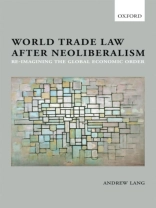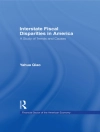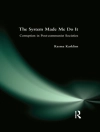The rise of economic liberalism in the latter stages of the 20th century coincided with a fundamental transformation of international economic governance, especially through the law of the World Trade Organization. In this book, Andrew Lang provides a new account of this transformation, and considers its enduring implications for international law. Against the commonly-held idea that ‘neoliberal’ policy prescriptions were encoded into WTO law, Lang argues that thelast decades of the 20th century saw a reinvention of the international trade regime, and a reconstitution of its internal structures of knowledge. In addition, the book explores the way that resistance to economic liberalism was expressed and articulated over the same period in other areas of international law, most prominently international human rights law. It considers the promise and limitations of this form of ‘inter-regime’ contestation, arguing that measures to ensure greater collaboration and cooperation between regimes may fail in their objectives if they are not accompanied by a simultaneous destabilization of each regime’sstructures of knowledge and characteristic features. With that in mind, the book contributes to a full and productive contestation of the nature and purpose of global economic governance.
Andrew Lang
World Trade Law after Neoliberalism [EPUB ebook]
Reimagining the Global Economic Order
World Trade Law after Neoliberalism [EPUB ebook]
Reimagining the Global Economic Order
购买此电子书可免费获赠一本!
语言 英语 ● 格式 EPUB ● ISBN 9780191656156 ● 出版者 OUP Oxford ● 发布时间 2013 ● 下载 6 时 ● 货币 EUR ● ID 2843470 ● 复制保护 Adobe DRM
需要具备DRM功能的电子书阅读器












